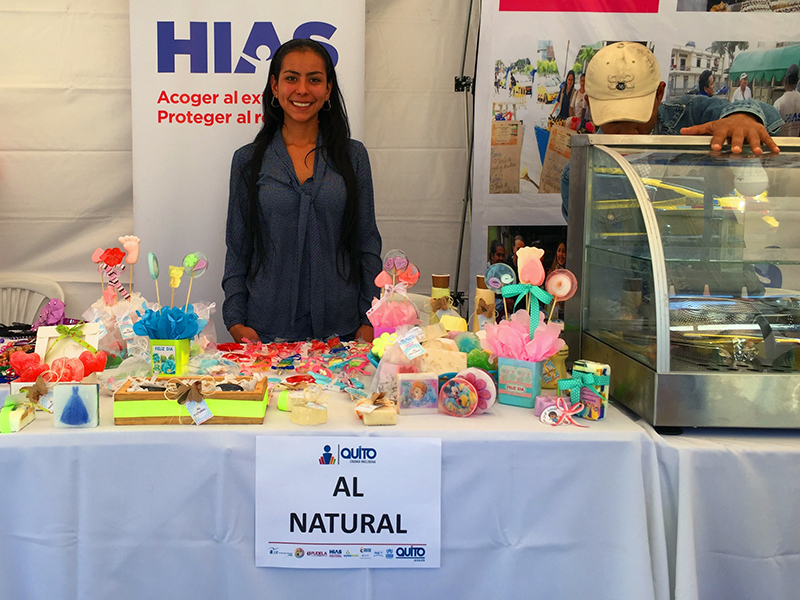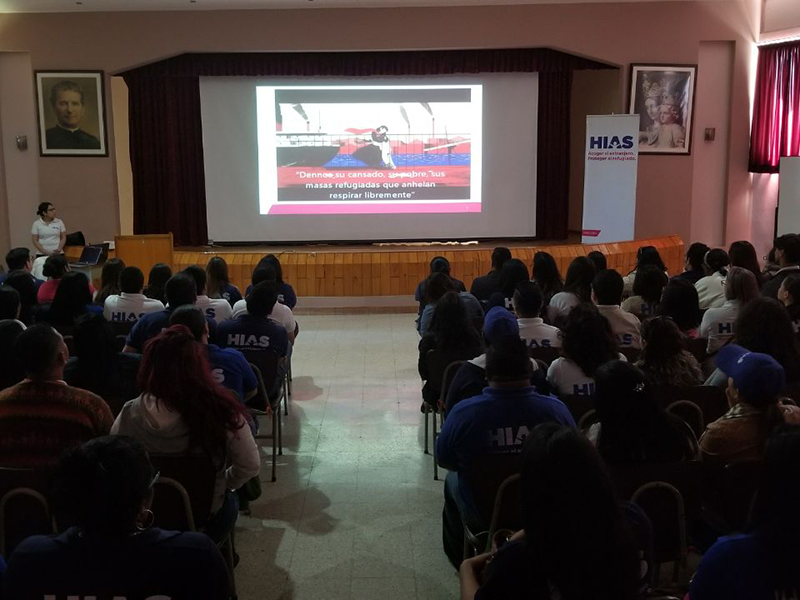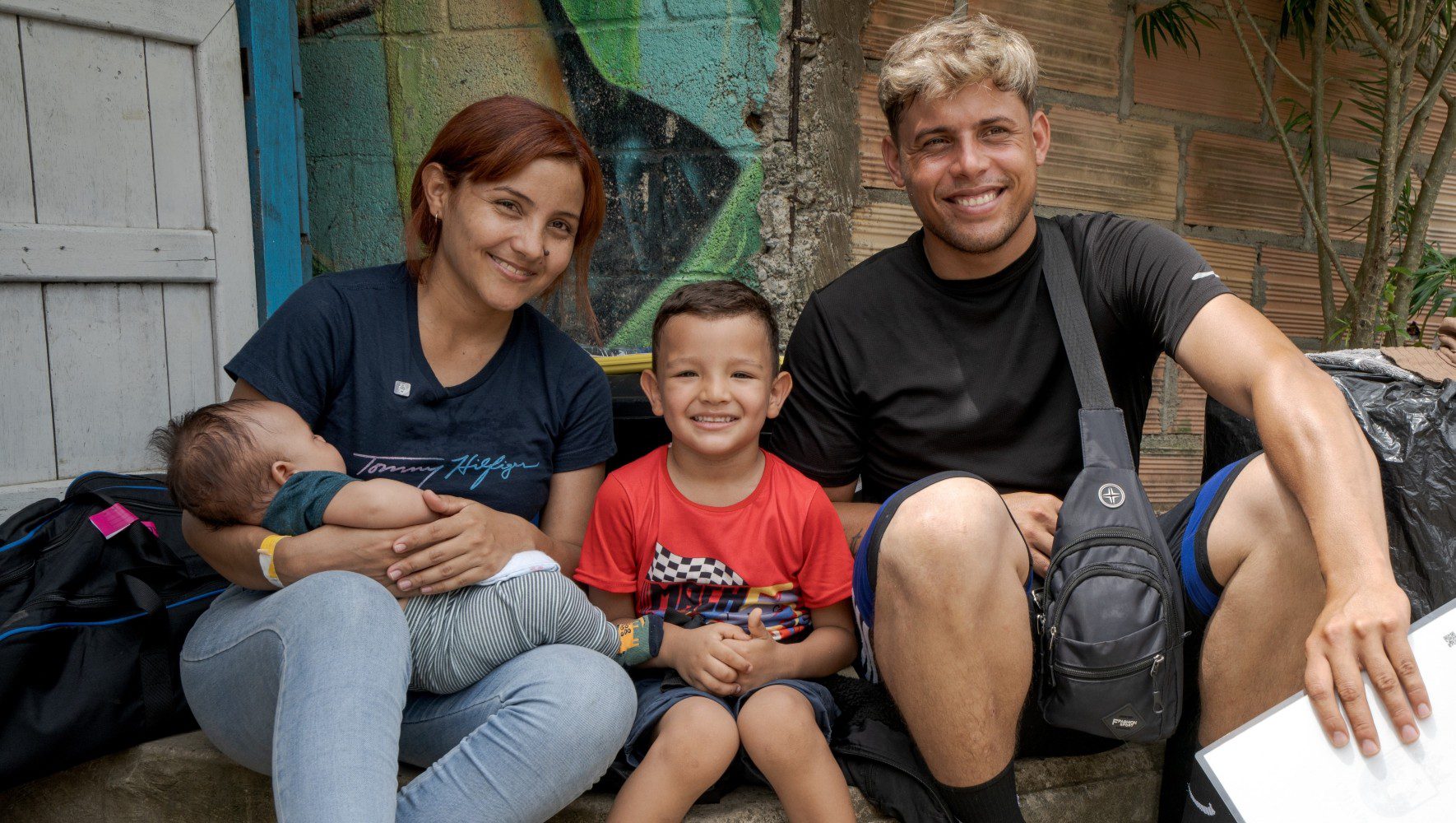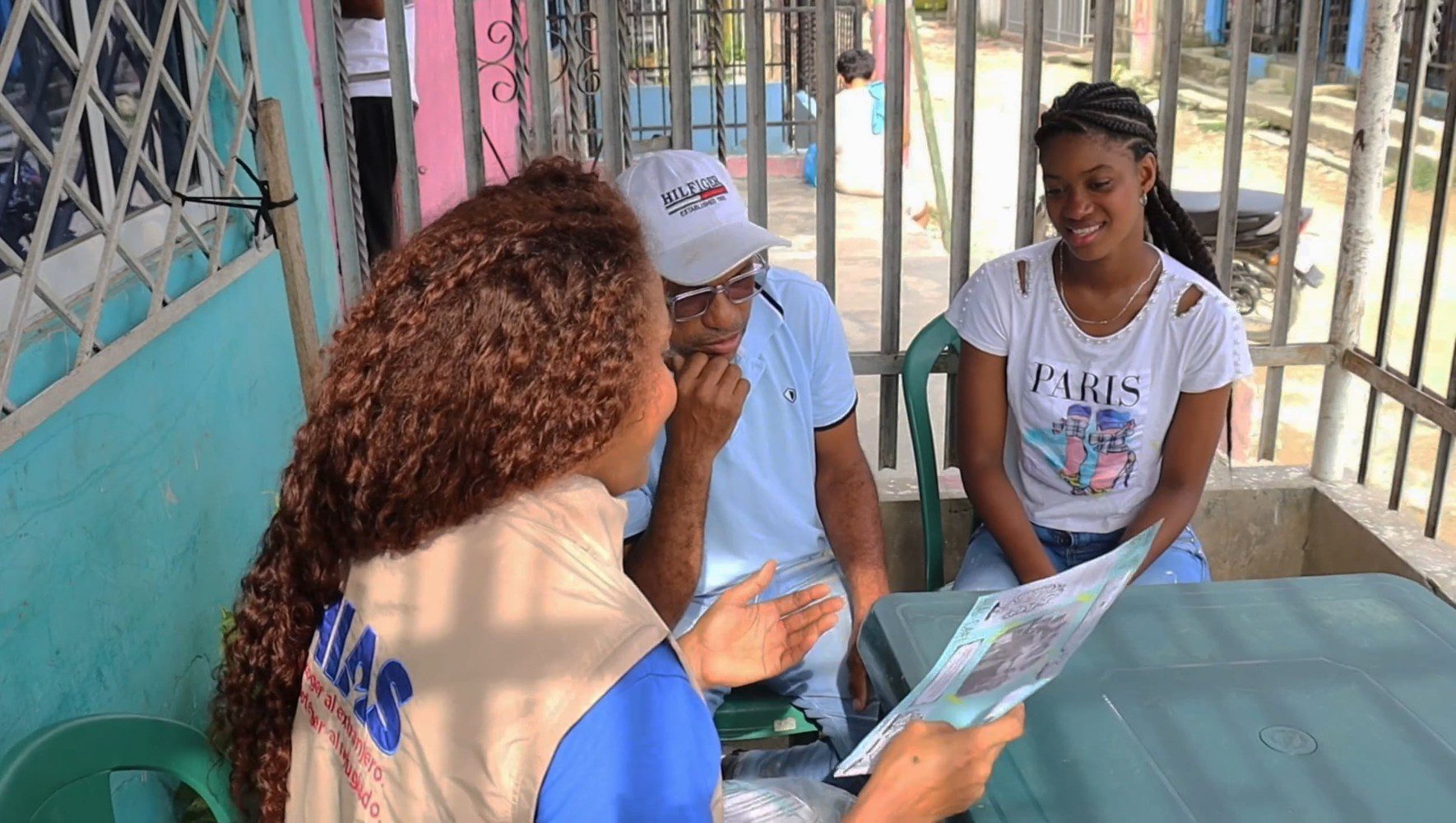HIAS in Ecuador Recognized for “Graduating” Refugees Out of Extreme Poverty
By Gabe Cahn, HIAS.org
Jan 22, 2018
Since 2003, HIAS has been assisting some of the most underserved refugees in Ecuador, primarily from Colombia, but increasingly from countries such as Venezuela, Syria, Afghanistan and Yemen.
Led by Country Director Sabrina Lustgarten, nearly 200 dedicated staff members assist more than 35,000 refugees and asylum seekers per year from 11 different offices across the country.
Beneficiaries include individuals with significant legal and protection needs, women head of households, survivors of sexual and gender-based violence (SGBV), those with chronic illnesses and disabilities, older people, and youth separated from their families and sexual minorities.
Long praised for who they were serving, HIAS in Ecuador is now being recognized for how they are serving.
“One of the greatest challenges facing refugees, whether they are escaping crisis in Venezuela or conflict in Colombia or Syria, is how to consistently make ends meet once safe in Ecuador,” says Lustgarten. “This is especially true for the poorest among the refugee population.”
“In partnership with UNHCR and others, we feel we have found a sustainable way—in a relatively short amount of time—to lift refugees out of extreme poverty.”
Lustgarten is referring to the “Graduation Model for Refugees,” a multi-faceted mechanism providing material support, training, asset transfers, access to savings, and intensive coaching to “graduate” poor refugees out of severe poverty.
“Existing microfinance and livelihoods programs tend to miss those at the lowest level of the economic ladder,” explains Jina Krause-Vilmar Director, HIAS’ Director of Economic Inclusion and Gender.
“The Graduation Model for Refugees combines social safety nets like cash transfers and food assistance with longer-term livelihoods training, employment and business support in a proven sequence that minimizes the risk of falling back into poverty.”
The program is built on five core elements: identification of the poorest refugee households, consumption support (cash and food assistance), development of financial literacy and savings, skills training (core and vocational), and business start-up support or job placement.
[[{"fid":"3864","view_mode":"default","fields":{"format":"default","field_file_image_alt_text[und][0][value]":false,"field_file_image_title_text[und][0][value]":false},"type":"media","field_deltas":{"3":{"format":"default","field_file_image_alt_text[und][0][value]":false,"field_file_image_title_text[und][0][value]":false}},"attributes":{"style":"margin: 10px; float: right;","class":"media-element file-default","data-delta":"3"}}]]
At the same time, the program is accompanied by psychosocial support and strategies for social cohesion with the host community. On a case by case basis, HIAS also addresses specific barriers for individual refugees such as loss of assets, not knowing their rights, and legal requirements.
To demonstrate the Graduation Model in action, Lustgarten mentions a woman named Marcela*.
Marcela arrived in Ecuador in April 2017, with her husband and two children. The family fled their hometown in Colombia due to the threats they received from irregular armed groups. Fearful for her children’s safety, Marcela left everything behind and decided to start a new life in Ecuador.
While in Colombia, Marcela worked as a secretary and her husband was part of the army, but when they arrived in Ecuador finding a job was quite difficult and the compensation was not enough to meet their needs. They struggled to find a place to live and acquire basic household items.
After enrolling in the Graduation Model, Marcela received business training and seed capital to start her own small business selling natural soap and other natural beauty products, an entrepreneurial initiative that has improved their economic situation.
Today, as part of this program, the family has opened a savings account, receive regular coaching and access health and education services. They are one step closer to achieving economic self-reliance and local integration.
Through intensive monitoring of the program, HIAS in Ecuador found that, like Marcela, between 60% and 89% of participants graduate within 18 months.
HIAS’ data shows that graduates of the Model become more food-secure and economically stable, better integrated into their communities, and increasingly well-positioned for future plans.
Overall, HIAS Ecuador has reached 2,300 families with the Graduation Model since 2015. In addition to partnerships with UNHCR, the World Food Programme, U.S. Department of State, and Trickle Up, HIAS Ecuador is working closely with the Ecuadorian government to institutionalize the program and scale up throughout the country.
As a result of the program’s success, HIAS Ecuador was one of 61 awardees at the UN Global Compact Award for Latin America in Quito in November 2017. The goal of the Global Compact is to mobilize business and civil society in achieving sustainable development goals.
“HIAS’ inclusion is truly a testament to the broad appeal of this poverty alleviation model within the larger discourse around humanitarian aid and development,” Krause-Vilmar Director tells HIAS.org.
*Name has been changed to protect client privacy.
To learn more about HIAS’ work protecting and welcoming refugees in Ecuador, click here.





